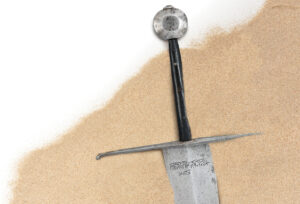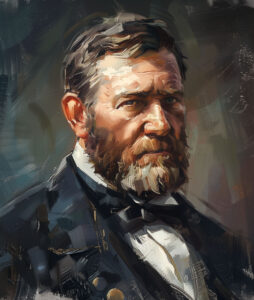The 1864 presidential election was the final crucial battle of the Civil War, and bullets, not ballots, decided the outcome.
By Roy Morris, Jr.
Of all the presidential elections in American history, none was more crucial than the one that took place on November 8, 1864, in the very midst of the Civil War. On it depended nothing less than the fate of the Union and the survival, or death, of the Confederate States of America. The choice was clear: If President Abraham Lincoln was re-elected, the war would be prosecuted to the finish, with no compromise settlement offered to the rebellious Southern states. If, on the other hand, Democratic candidate George B. McClellan won the presidency, the South could expect generous peace terms in line with the oft-stated slogan, “The Constitution as it is, the Union as it was.” Slavery, in some form or another, would continue, and the Emancipation Proclamation, if not the Gettysburg Address, would be relegated to the ash heap of history.
Author John C. Waugh traces the tumultuous and by no means certain electoral victory of Abraham Lincoln in his engrossing new book, Reelecting Lincoln: The Battle for the 1864 Presidency (Crown Publishers, New York, $30). A former political reporter himself, Waugh sets out to cover the 1864 election as it might have been covered by a reporter at the time. In doing so, he creates a surprisingly suspenseful study of an election whose outcome, of course, is now well-known.
As Waugh makes clear, the outcome of the 1864 election was not preordained at the time. Not only did Lincoln face the continuing challenge of a well-armed and heroically led Confederacy, he also faced political challenges from a variety of sources closer to home. In Lincoln’s own cabinet, Treasury Secretary Salmon P. Chase was openly organizing a run for the White House, while radical Republican leaders Charles Sumner and Thaddeus Stevens rallied opposition to Lincoln’s presumptive reconstruction policies in the U.S. Senate and House of Representatives. And the very successes that Maj. Gen. Ulysses S. Grant was giving Lincoln on the field of battle were creating a potentially devastating political rival for the 1864 presidential nomination. Troublesome fringe candidates such as 1856 Republican presidential nominee John C. Fremónt and Union General Benjamin Butler made threatening noises on the sidelines. Meanwhile, shadowy pro-Southern organizations like the Sons of Liberty were operating in the Midwest to subvert the Union war effort and cost Lincoln his re-election.
Most dangerous of all to Lincoln’s political hopes was former Union General George B. McClellan, whom Lincoln had twice promoted–and twice sacked–as head of the Army of the Potomac. “Little Mac,” under the sway of prominent Democratic politicians and money men in New York, had readily turned on his former commander in chief and stood poised to enter the White House as a man of war turned man of peace. His military background made him largely immune to charges that he would be too soft on the Confederates, even if his own leniency toward his erring brothers was well-established on either side of the Mason-Dixon line.
As for Lincoln himself, by the summer of 1864 the president was nearly as war-weary as his most ardent opponents. To one White House visitor he exclaimed, “You think I don’t know I am going to be beaten, but I do and unless some great change takes place, badly beaten!” The president secretly jotted down his own prediction that he would not be re-elected and had the members of his cabinet sign it.
In the end, perhaps as much to Lincoln’s surprise as to his satisfaction, the election was decided on the battlefield, not at the ballot box. The three most eloquent “stump speeches,” Waugh notes, were those made by Union Generals William Sherman and Phil Sheridan and Union Admiral David Farragut in the summer preceding the fall election. Farragut spoke first at Mobile Bay, on August 4, 1864, steaming past the brooding Confederate forts at the mouth of the bay and capturing the vital Southern port city. On September 2, at Atlanta, Sherman spoke next. “Atlanta is ours and fairly won,” he cabled the White House. And two weeks later, in Virginia’s beloved Shenandoah Valley, Sheridan sent the Confederate army “whirling through Winchester,” thus clearing the valley of effective Rebel resistance and opening it up for a season of vicious, vindictive burning and destruction.
When the nation went to the polls on a rainy November 8, 1864, the issue was no longer in doubt. Lincoln won by a margin of 411,482 votes, with an electoral vote margin of 212-21. “The smoke has cleared away,” McClellan wrote needlessly to his mother, “and we are beaten.” Union cavalryman Charles Francis Adams, Jr., summed up the matter best. “This election has relieved us of the fire in the rear and now we can devote an undivided attention to the remnants of the Confederacy.” Those remnants would hold out a few months longer, but after the re-election of Abraham Lincoln, there was no longer a question of victory. The Northern people had spoken as loudly at the ballot box as their soldiers had spoken in the field.




